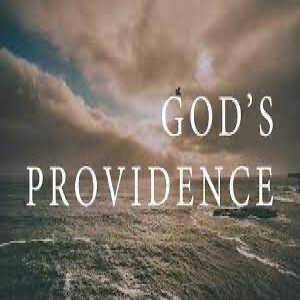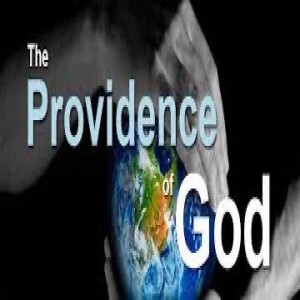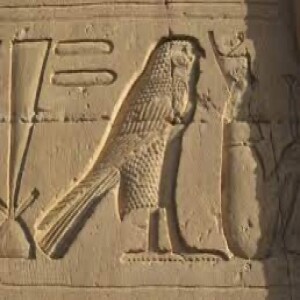
23.7K
Downloads
318
Episodes
Cincy Reformed Podcast is a podcast of Westside Reformed Church (URCNA) in Cincinnati, OH. Pastors Zac (Mdiv, Westminster Seminary California) and Brandon (MAR, Westminster Theological Seminary) discuss matters of theology, history, apologetics, contemporary issues, and more.
Cincy Reformed Podcast is a podcast of Westside Reformed Church (URCNA) in Cincinnati, OH. Pastors Zac (Mdiv, Westminster Seminary California) and Brandon (MAR, Westminster Theological Seminary) discuss matters of theology, history, apologetics, contemporary issues, and more.
Episodes

Monday Mar 27, 2023
Can We Change God’s Pronouns to They/Them?
Monday Mar 27, 2023
Monday Mar 27, 2023
Can we change God's pronouns to "They/Them"? When the Bible uses the pronouns "He" or "Him" referring to the Father, Son, or Holy Spirit, are we able to change or tweak those pronouns? In other words, is God male?
For more information, see:
Gender of God by OPC
Is It Proper to Call God Mother? by OPC
Strange New World: How Thinkers and Activists Redefined Identity and Sparked the Sexual Revolution by Carl Trueman
Critical Race Theory by Timothy Brindle

Monday Mar 27, 2023
Can We Change God’s Pronouns to They/Them? (Audio only)
Monday Mar 27, 2023
Monday Mar 27, 2023
Can we change God's pronouns to "They/Them"? When the Bible uses the pronouns "He" or "Him" referring to the Father, Son, or Holy Spirit, are we able to change or tweak those pronouns? In other words, is God male?
For more information, see:
Gender of God by OPC

Tuesday Mar 14, 2023
Are Covenant Children Christians?
Tuesday Mar 14, 2023
Tuesday Mar 14, 2023
How should we view our children? Are the children of believing parents Christians, or do we merely hope one day that they will become Christians? When we baptize infants of believing parents, are we saying, "God's promise rests upon my covenant child and I hope he or she becomes a Christian one day?" or are we saying, "I'm baptizing my covenant child because he or she is a Christian and already has the Holy Spirit?" Cornelius Van Til said, “Before God our children are personalities from and before their birth; we are chosen in Him before the foundation of the world. Moreover, I must regard all children of believers as children of God till the contrary appear to be true.” Should this be our approach as well?
In this episode, Pastors Zac and Brandon discuss the status and nature of a covenant child.
For more information, see:
Church, Baptism, and Faith in the Reformed Tradition by Greystone Conversations
10 Reasons to Baptize Covenant Children by Cincy Reformed
Reformed Baptism by Cincy Reformed

Tuesday Mar 07, 2023
What is the Providence of God?
Tuesday Mar 07, 2023
Tuesday Mar 07, 2023
What is the Providence of God? Does God control everything? In this episode, Pastor Brandon and Zac speak about the Providence of God.
For more information, see:
What is Providence? By Derek Thomas
The Mystery of Providence by John Flavel

Monday Mar 06, 2023
What is the Providence of God? (Audio only)
Monday Mar 06, 2023
Monday Mar 06, 2023
What is the Providence of God? Does God control everything? In this episode, Pastor Brandon and Zac speak about the Providence of God.
For more information, see:
What is Providence? By Derek Thomas

Tuesday Feb 28, 2023
Does the Bible Borrow from Pagan Religions?
Tuesday Feb 28, 2023
Tuesday Feb 28, 2023
Is Christianity a repackaged myth derived from other ancient, pagan religions? Is Jesus and His Gospel based on Egyptian and Roman mythology? Did ancient Israel ever borrow from the Egyptians? In this episode, Pastors Brandon and Zac discuss these questions and more.
For more information, see:
The Christ of Wisdom by O. Palmer Robinson
Know Why You Believe by K. Scott Oliphint
Why Should I Believe Christianity? by James Anderson
Covenantal Apologetics by K. Scott Oliphint
Defense of the Faith by Cornelius Van Til
The Ultimate Proof of Creation by Jason Lisle

Monday Feb 27, 2023
Does the Bible Borrow from Pagan Religions? (Audio only)
Monday Feb 27, 2023
Monday Feb 27, 2023
Is Christianity a repackaged myth derived from other ancient, pagan religions? Is Jesus and His Gospel based on Egyptian and Roman mythology? Did ancient Israel ever borrow from the Egyptians? In this episode, Pastors Brandon and Zac discuss these questions and more.
For more information, see:
The Christ of Wisdom by O. Palmer Robinson
Know Why You Believe by K. Scott Oliphint
Why Should I Believe Christianity? by James Anderson
Covenantal Apologetics by K. Scott Oliphint
Defense of the Faith by Cornelius Van Til
The Ultimate Proof of Creation by Jason Lisle

Monday Feb 20, 2023
Does Jesus ”Get Us”?
Monday Feb 20, 2023
Monday Feb 20, 2023
Does Jesus "Get Us"? In this episode, Pastors Brandon and Zac respond to the "He Gets Us" campaign.
For more information, see:
Exploring the Order of Scriptural Reality as Reality by Mark Garcia

Monday Feb 20, 2023
Does Jesus ”Get Us”? (Audio only)
Monday Feb 20, 2023
Monday Feb 20, 2023
Does Jesus "Get Us"? In this episode, Pastors Brandon and Zac respond to the "He Gets Us" campaign.
For more information, see:
Exploring the Order of Scriptural Reality as Reality by Mark Garcia

Monday Feb 13, 2023
Total Depravity: How Are We Impacted by Adam’s Rebellion?
Monday Feb 13, 2023
Monday Feb 13, 2023
What is total depravity and what does it mean to be totally depraved? This episode is a catechism sermon preached by Pastor Brandon from Lord's Day Three of the Heidelberg Catechism.
For more information, see:
The Imputation of Adam's Sin by John Murray
Saving the Reformation: The Pastoral Theology of the Canons of Dort by Robert Godfrey
